Partners include national patient, provider, LGBTQ, and student organizations
Washington, DC – America’s Blood Centers (ABC), the national organization of community-based, independent blood centers that supply 60 percent of the nation’s blood supply, today announced the inaugural Blood Advocacy Week occurring April 24th-28th. This new collaboration brings together members of the blood community, legislators, agency decisionmakers, advocates, providers, patients, and more to learn about and advance policies that promote the value of blood to patients, communities, and our healthcare system. A new website, BloodAdvocacyWeek.org, has been launched with additional background, advocacy information, shareable social media content, and more.
“Growing and diversifying the nation’s donor base and ensuring the long-term resilience of America’s blood supply takes everyone. America’s Blood Centers is proud to launch this new collaboration to bring together those touched by the lifesaving power of blood to advance policies that promote the value of blood to patients, communities, and our healthcare system. We want to thank our partners and sponsors who are making this week possible. Everyone can do something and encourage all those interested to join us in this important work,” said Kate Fry, Chief Executive Officer at America’s Blood Centers.
Each day of this week will use a virtual event and social media campaigns to highlight a different advocacy priority and provide information about changes that could be made to strengthen and diversity America’s blood supply. Topics include A Call to Action: Analyzing Trends Impacting the Nation’s Blood Supply and What Must Change Moving Forward (April 24th), Welcome Blood Donors: Promoting Awareness of New Eligibility Criteria (April 25th), Day on Capitol Hill for ABC members (April 26th), When Time Matters: Saving and Enhancing Lives Through Access to Blood (April 27th), and It’s About Life: Why Donor Diversity is Critical to Patient Care (April 28th).
The Blood Advocacy Week website includes background on each day’s topic, information on advocacy work, links to sign up for virtual events, and shareable social media and video content. To join this collaborative effort as a partner or sponsor, organizations can contact America’s Blood Centers here.
Dozens of diverse partners have signed on to help promote the value of blood through taking part in Blood Advocacy Week. This includes the Centers for Disease Control and Prevention, ADRP, Blood Centers of America, , Civil Air Patrol, the Crescent Foundation, Elks, Fresenius Kabi, Georgia Health Policy Center, GLAAD, Health Professions Week, HOSA Future Health Professionals, the National Hemophilia Foundation, Operation Pulse Lift, Sickle Cell Foundation of Minnesota, the Student Leadership Council, Terumo Blood and Cell Technologies, Thalassemia International Federation, the Thrive with Pyruvate Kinase Deficiency Organization, University Blood Initiative, and Whitman-Walker Health.
They are being joined by community blood centers across the country, including Blood Assurance, Carter BloodCare, Community Blood Center (Appleton), Community Blood Center-Dayton, the Blood Center (New Orleans), Gulf Coast Regional Blood Center, Houchin Community Blood Bank, LIFELINE Blood Services, LifeServe Blood Center, LifeSouth Community Blood Centers, MEDIC Regional Blood Center, Miller-Keystone Blood Center, Rock River Valley Blood Center, San Diego Blood Bank, Shepeard Community Blood Center, South Texas Blood and Tissue, The Blood Connection, Versiti, and Vitalant.
Founded in 1962, America’s Blood Centers is the national organization bringing together community-based, independent blood centers. Its member organizations operate more than 600 blood collection sites providing close to 60 percent of the U.S., and a quarter of the Canadian, blood supply. These blood centers serve more than 150 million people and provide blood products and services to more than 3,500 hospitals and healthcare facilities across North America. All ABC U.S. members are licensed and regulated by the U.S. Food and Drug Administration. For more information, visit www.AmericasBlood.org.
###
